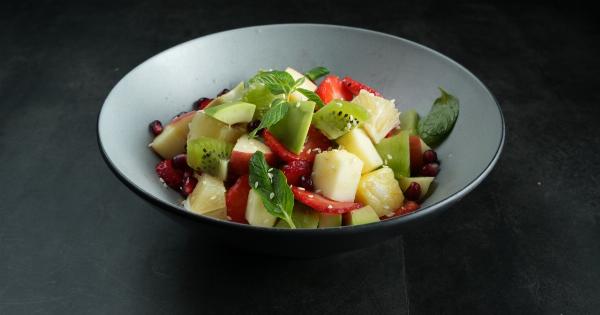When it comes to introducing new foods to babies, many parents are hesitant about certain fruits due to concerns about allergies or potential digestive issues. Kiwi is a popular fruit known for its vibrant green flesh and unique taste.
However, can babies safely consume this exotic fruit? In this article, we will explore the nutritional benefits of kiwi, potential risks, and guidelines for introducing it to your little one.
Nutritional Benefits of Kiwi for Babies
Kiwis are packed with essential nutrients that are beneficial for a baby’s growth and development. They are an excellent source of vitamin C, which helps support a healthy immune system.
Additionally, kiwis contain dietary fiber, folate, vitamin E, potassium, and antioxidants. These nutrients contribute to various aspects of your baby’s well-being, including digestion, brain development, and overall health.
When Can Babies Start Eating Kiwi?
According to pediatricians and nutrition experts, most babies can begin consuming kiwi as early as six months of age. At this stage, infants have typically started solids and have adequate digestive capabilities to handle new foods.
However, as with any new food, it is always a good idea to consult with your baby’s pediatrician before introducing kiwi to their diet, especially if there is a family history of food allergies.
Potential Risks and Allergy Concerns
Allergies to kiwi are rare, but they can occur. Kiwi allergies are more prevalent in individuals with a family history of allergic reactions or those who are already sensitive to other fruits such as bananas, avocados, or latex.
It is essential to be aware of the potential signs of an allergic reaction, such as hives, swelling of the lips or face, difficulty breathing, or vomiting. If your baby exhibits any of these symptoms after consuming kiwi, seek medical attention immediately.
Another concern some parents have is the potential for kiwi to cause digestive issues or be a choking hazard for babies.
To minimize the risk of choking, ensure the kiwi is ripe, soft, and cut into small, age-appropriate pieces or mashed into a puree for infants. As for digestive issues, introducing kiwi gradually and in small amounts can help your baby’s digestive system adjust to this new fruit.
How to Introduce Kiwi to Your Baby’s Diet
When introducing kiwi to your baby, follow these simple steps to help ensure a smooth transition:.
Step 1: Choose the right kiwi
Opt for fully ripe kiwis that yield to gentle pressure. Avoid overripe kiwis, as they may cause an upset stomach or have an altered taste.
Step 2: Wash and peel the fruit
Before offering kiwi to your baby, thoroughly wash the fruit under running water. Use a knife or a peeler to remove the skin, as it may be too tough for your little one to chew or digest.
Step 3: Slice or mash
Depending on your baby’s age and chewing abilities, you can slice the kiwi into tiny, bite-sized pieces or mash it into a smooth puree. For younger babies who are just starting solids, a puree consistency may be more suitable.
Step 4: Offer in small amounts
Start by offering a small amount of kiwi to your baby and observe their reaction. If there are no adverse effects, gradually increase the portion size over time.
Step 5: Monitor for allergies or digestive issues
Keep an eye out for any signs of allergies or digestive discomfort after introducing kiwi. If your baby tolerates it well, you can continue including kiwi as a part of their balanced diet.
The Importance of Variety in a Baby’s Diet
Introducing a variety of fruits, vegetables, grains, and proteins to your baby’s diet is crucial for their overall nutrition.
While kiwi offers several health benefits, it is essential not to rely solely on this fruit or any single food item for your baby’s nutrition. A diverse diet will provide them with a wide range of vitamins, minerals, and nutrients necessary for their optimal growth and development.
Conclusion
When introduced at the appropriate age and in a safe manner, kiwi can be a nutritious addition to a baby’s diet. Its numerous health benefits make it an attractive choice for parents looking to diversify their little one’s meals.
Remember to consult with your baby’s pediatrician before introducing any new foods and keep an eye out for any signs of allergies or digestive issues. With careful monitoring and gradual introduction, your baby can enjoy the taste and nutritional benefits of kiwi!.































